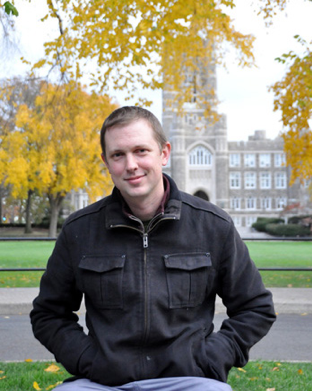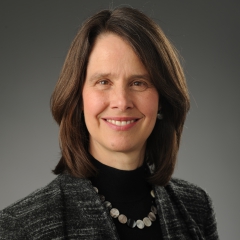The Jewish Book Council awarded Prof. Magda Teter‘s book, Blood Libel: On the Trail of an Antisemitic Myth Libel, the JDC-Herbert Katzki Award. Prof. Teter is the Shvidler Chair in Judaic Studies and Professor of History.
Category Archives: Faculty Profiles
Prof. Magda Teter’s book, Blood Libel: On the Trail of an Antisemitic Myth Libel, wins National Jewish Book Award.
Comments Off on Prof. Magda Teter’s book, Blood Libel: On the Trail of an Antisemitic Myth Libel, wins National Jewish Book Award.
Filed under Faculty Awards, Faculty Profiles, Faculty Profiles
Prof. Christopher Dietrich publishes “Erasing the Marks of Domination: Economic Sovereignty, Decolonization, and International Lawmaking in the 1950s and 1960s” in Journal of the History of International Law / Revue d’histoire du droit international.
Prof. Christopher Dietrich publishes “Erasing the Marks of Domination: Economic Sovereignty, Decolonization, and International Lawmaking in the 1950s and 1960s” in Journal of the History of International Law / Revue d’histoire du droit international.
Below is the abstract:
This article tells a legal and intellectual history of oil and decolonization in the 1950s and 1960s through the projects of international institutions including the UN Permanent Sovereignty Commission and the Organization of Petroleum Exporting Countries and the work of anti-colonial lawyers Hasan Zakariya and Nicolas Sarkis. It examines the ideas and infrastructure of decolonization as they related to the question of how international law could be used to win economic sovereignty.

Comments Off on Prof. Christopher Dietrich publishes “Erasing the Marks of Domination: Economic Sovereignty, Decolonization, and International Lawmaking in the 1950s and 1960s” in Journal of the History of International Law / Revue d’histoire du droit international.
Filed under Faculty News, Faculty Profiles, Faculty Profiles, Publications
Professor Kirsten Swinth has been awarded a Russell Sage Visiting Scholar Fellowship for the academic year 2021-2022.
Congratulations! Professor Kirsten Swinth has “been awarded a Russell Sage Visiting Scholar Fellowship for the academic year 2021-2022. This is a highly prestigious award, with the Foundation granting about 15 Visiting Scholar awards a year, and in the last six years, only four historians have received the fellowship. The Russell Sage Foundation is broadly dedicated to “the improvement of social and living conditions in the United States.”
You can follow her on Twitter @kswinth.

Professor Kirsten Swinth
Comments Off on Professor Kirsten Swinth has been awarded a Russell Sage Visiting Scholar Fellowship for the academic year 2021-2022.
Filed under Faculty Awards, Faculty Profiles, Faculty Profiles, Fordham News
Prof. Asif Siddiqi Publishes Book Review, “Transcending Gravity: The View from Postcolonial Dhaka to Colonies in Space,” in the Los Angeles Review of Books.
On October 12, 2020, Prof. Asif Siddiqi published, “Transcending Gravity: The View from Postcolonial Dhaka to Colonies in Space,” in The Los Angeles Review of Books.

You can follow Prof. Asif Siddiqi on Twitter @historyasif.
Comments Off on Prof. Asif Siddiqi Publishes Book Review, “Transcending Gravity: The View from Postcolonial Dhaka to Colonies in Space,” in the Los Angeles Review of Books.
Filed under Faculty Profiles, Faculty Profiles, Publications
Meet Our Newest Faculty Member, Prof. Stephanie Huezo!
Prof. Huezo is one of our newest additions to our department and we are very excited to have her join us! She is a Professor of Central and Latin American History. Here is a brief conversation with her.

- What courses do you hope to teach at Fordham?
Aside from UHC: Latin America, I am excited to offer courses on Power and Resistance in Latin America, Central American History (both the region and the diaspora), and on popular education.
2. What do you on your off-time/leisure?
In my free time I enjoy playing board games with my friends and family. I watch quite a bit of T.V. as well. Recently, I’ve been watching Star Trek: The Next Generation, reruns of Sister Sister, the Golden Girls, and Netflix shows like 3%. I also aspire to one day be a good baker but for now, I bake pre-made goods and watch baking shows on TV.
3. Why are you excited about coming to Fordham?
I went to catholic schools in the Bronx so I grew up hearing about Fordham but I decided not to apply. However, I have always been intrigued by the University’s mission. I am excited to work at a place that values the student and worker as a whole. More importantly, as a first-generation college student and SalviYorker, I look forward to teach, and learn from, the young scholars at Fordham University.
4. Please briefly tell us about your research?
My research focuses on Salvadoran community organizing during the twentieth and twenty-first century in both El Salvador and the United States. I pay particular attention to how Salvadoran communities have used popular education to challenge the politics of legality and belonging.
5. What thing would no one know about you that you would like to share?
One thing that many new people don’t know about me is that I used to play club rugby at Wesleyan University and in Chile during study abroad. I had many positions but my favorite ones were as a Number 8 and hooker. https://www.ruck.co.uk/rugby-positions-roles-beginners/
You can follow Prof. Stephanie Huezo @steph_huezo.
Comments Off on Meet Our Newest Faculty Member, Prof. Stephanie Huezo!
Filed under Faculty Profiles, Faculty Profiles
Professor Christopher Maginn Publishes “Teaching the World of Queen Elizabeth I in the Age of SARS CoV-19” in The Sixteenth Century Journal.
On July 7, 2020, Professor Christopher Maginn has just published an article in a special Early Modern Classroom supplement (2020) devoted to teaching in the era of COVID-19. Below is a link to the piece. Someone may find its discussion of pedagogy useful.
You can read the piece on this link: https://www.escj.org/blog/teaching-world-queen-elizabeth-i-age-sars-cov-19.html
Comments Off on Professor Christopher Maginn Publishes “Teaching the World of Queen Elizabeth I in the Age of SARS CoV-19” in The Sixteenth Century Journal.
Filed under Faculty News, Faculty Profiles, Faculty Profiles, Fordham News, Global History, Public History, Publications, Teaching
Professor Nana Osei-Opare published “When It Comes to America’s Race Issues, Russia Is a Bogeyman” in Foreign Policy Magazine.
On July 6, 2020, Fordham history Professor Nana Osei-Opare published an op-ed piece in Foreign Policy Magazine called, “When It Comes to America’s Race Issues, Russia Is a Bogeyman.”
You can read the piece on this link: https://foreignpolicy.com/2020/07/06/when-it-comes-to-americas-race-issues-russia-is-a-bogeyman/
You can follow him on Twitter @NanaOseiOpare.
Comments Off on Professor Nana Osei-Opare published “When It Comes to America’s Race Issues, Russia Is a Bogeyman” in Foreign Policy Magazine.
Filed under Faculty News, Faculty Profiles, Faculty Profiles, Global History, Public History, Publications
Professor Westenley Alcenat Published “Black Lives and the Fourth of July” in The Nation.
On July 3, 2020, Fordham history Professor Westenley Alcenat published an op-ed piece in The Nation called, ““Black Lives and the Fourth of July.”
You can read the piece on this link: https://www.thenation.com/article/society/juneteenth-independence-day/
Comments Off on Professor Westenley Alcenat Published “Black Lives and the Fourth of July” in The Nation.
Filed under Faculty News, Faculty Profiles, Faculty Profiles, Public History
Professor Westenley Alcenat Featured in CBS News on “Did you learn about Juneteenth in school? Many American history lessons fall short on black history”
The content below is reproduced verbatim from Caitlin O’Kane’s June 19, 2020, story, “Did you learn about Juneteenth in school? Many American history lessons fall short on black history.”
Westenley Alcenat, an assistant professor of History, Urban & American Studies at Fordham University, says black history curriculums in all schools are either “inadequate, inaccurate, or simply non-existent.”
“I went to high school in Minneapolis, actually, exactly in the same areas that were deeply affected by the George Floyd incident,” Alcenat told CBS News. “I can confidently tell you that much of what I know regarding American history within the context of what contributions or roles black people made to it… was not something that I really learned as much about in high school as something I learned in adulthood.”
Alcenat said African American history is often sequestered from the larger narrative of American history. Instead, children at all education levels should be learning about the contributions African Americans made throughout history.
“We are not taught enough about how black men and women put their lives on the line to create what we know today as the multiracial vision of American democracy,” Alcenat said.
“Given the type of society we’re striving towards, the type of society we’d like to be, let’s let our kids know very early on what [African Americans’] particular contributions really are,” he said.
In the wake of nationwide protests against racial injustice, new efforts are being made by many American institutions to advance diversity and equality and address longstanding biases. Companies are suddenly recognizing the need to rebrand products like Aunt Jemima and Uncle Ben’s due to their racist imagery, the country band Lady Antebellum changed its name, and NASCAR banned the Confederate flag.
While these changes may be welcome, some believe real progress can only be made if a fuller version of history is taught in schools.
“Without knowledge of history, how do you put together an empathetic, humane response to horrible situations like the George Floyd murder, which we know is a symptom of the larger historical forces of racism in this country?” Alcenat said. “It’s incredibly important that we try to provide a correctness to how it’s all being taught at the moment. Or else we risk not necessarily repeating history, we risk not knowing how to deal with ourselves when these moments of history come upon us.”
Comments Off on Professor Westenley Alcenat Featured in CBS News on “Did you learn about Juneteenth in school? Many American history lessons fall short on black history”
Filed under Faculty Profiles, Faculty Profiles, Fordham News, Public History
What Is Global History at Fordham? (Part 4 – Prof. Westenley Alcenat)
This is part 4 of our new series, “What is Global History at Fordham?” Today, we hear from Professor Westenley Alcenat, a member of Fordham’s Global History consortium, on what global history means to him and how it shapes his work.
“Most historical tools of analysis we have at our disposal are inherited from the territorial logic of the late nineteenth century European academy. Now that we live in a time and place where the realities of a networked and globalized world disrupted this nation-state model, the pervasive tendency to conceive of national histories as the history of localized, discrete, self-contained spaces has to exist as only one among other analytical frameworks of historical methodology. Modernizing contemporary historical inquiry cannot operate outside of an understanding of systems of interactions, institutional patterns of connectedness, and historical complexes (race, class, gender, nations and nation-states, regional, geographical, etc.,). In other words, to ignore the global in the local, and vice versa, is to articulate an almost vacuous history.
As a historian of comparative Caribbean and American slavery and emancipation, I try to avoid that analytical trap by examining my sources, as well as approach my pedagogy, through the lens of comparative historical analysis. This means starting foremost by understanding global history as NOT a study of globalization; rather, globalization is the core of global history. And in order to get closer to the historical properties at that core, I encourage students to ask questions that place events and problems in their global context. Historians working within traditional national, transnational, or world-based historical approaches can situate their different conceptual frameworks within that globalized paradigm.”

Comments Off on What Is Global History at Fordham? (Part 4 – Prof. Westenley Alcenat)
Filed under Faculty Profiles

